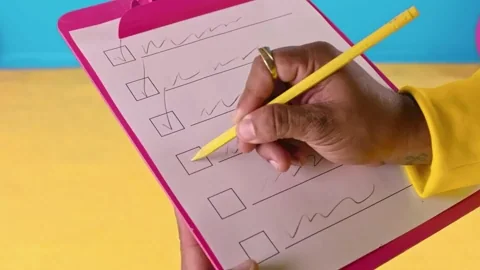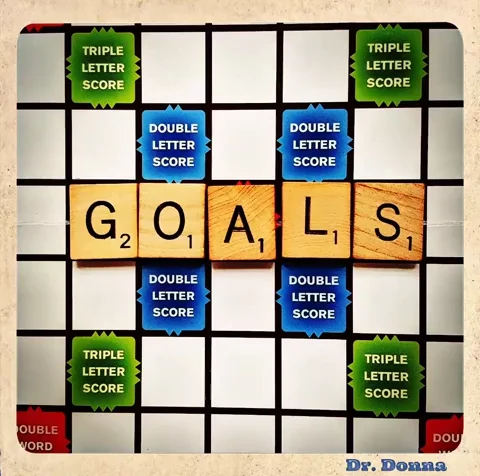
This logo isn't an ad or affiliate link. It's an organization that shares in our mission, and empowered the authors to share their insights in Byte form.
Rumie vets Bytes for compliance with our
Standards.
The organization is responsible for the completeness and reliability of the content.
Learn more
about how Rumie works with partners.
Feeling overwhelmed by schoolwork and doubting your ability to succeed? You're not alone!

Many students struggle with self-confidence in their academic skills, which impacts their performance and overall well-being. Understanding and improving self-confidence is important for academic success and personal growth.
Boosting your self-confidence in academic skills can lead to better grades, a more positive attitude toward learning, and greater resilience in facing challenges. By developing these skills, you'll be better equipped to achieve your goals and enjoy your study journey.

1. Identify Your Strengths
Whether it's excelling in math, writing, or creative thinking, everyone has something they're good at. For example, if you're skilled at writing, you can use this ability to create comprehensive study notes.

Or if you're good at summarizing information, you can create concise summaries of each chapter you read to enhance your review process.

There are several ways to identify your strengths:
Take a strengths test: Tools such as the HIGH5 Strengths Test can provide valuable insights into your unique capabilities and academic strengths.
Ask for feedback: Seek feedback from teachers, parents, or friends to gain a better understanding of your strengths. They might notice strengths that you haven't recognized in yourself.
Reflect on past successes: Consider times when you performed well academically and think about the skills or abilities that helped you succeed. This reflection can help you identify your strengths.
Think about your preferences: Take into account the subjects or activities you enjoy the most. Often, your strengths align with your interests.
Quiz
Which of the following is a good way to identify your strengths?
If you enjoy writing, why not use your skills to create helpful study notes? For example, if you're good at summarizing information, you can make short and sweet summaries of each chapter you read to make reviewing easier.
2. Set Achievable Goals
When you’re thinking about your study goals, it’s really helpful to break them down into smaller, more manageable tasks. This can make everything feel less overwhelming and instead, foster a sense of control and confidence. By tackling each small task, you build self-confidence and boost your chances of reaching your goals.

For example, instead of trying to finish an entire textbook in a week, why not set a goal to read just one chapter a day? This way, you can focus better and it feels more doable.
Also, when you're dealing with a big project, it's great to break it down into smaller steps like research, outlining, drafting, and final editing. This way, you can focus on one step at a time and keep track of how you're doing.

3. Challenge Negative Thoughts
Replace negative self-talk with positive thinking. This boosts self-confidence, which in turn can significantly improve your academic performance.
Remind yourself of past successes and focus on what you can do well. If you think, “I’m not good at math,” challenge this thought by remembering when you solved a tough problem or boosted your grades.
4. Celebrate Small Wins
Recognizing and celebrating your achievements, regardless of their size, is crucial for maintaining motivation and confidence.
When you complete tasks or reach goals, acknowledge your efforts and reward yourself. After a productive study session, consider a tasty snack or a short break to recharge. If you’ve conquered a challenging assignment, treat yourself to a fun activity like watching your favorite show, going for a walk, or engaging in a hobby.
These small rewards act as positive reinforcement, helping you to stay driven as you pursue your goals and boost your self-confidence.

5. Seek Support
When you come across challenges with your schoolwork or projects, remember to reach out to your teachers, friends, or family for support. They can provide valuable guidance and encouragement to help you through tough times. Try these options:
If you're finding a particular subject difficult, ask your teacher for extra help.
Form or join a study group with classmates working on the same material.
If you're stuck on a science project, for example, chatting with a classmate who understands the topic well can give you fresh perspectives and potential solutions.
Remember, seeking help and collaborating with others can lead to new insights and better results. That's how you can boost your self-confidence!

6. Practice Self-Compassion

Remember to be kind to yourself, especially when you make mistakes. Mistakes are a crucial part of the learning and growth process. Treat yourself with the same compassion and understanding that you would offer to a friend who's going through a tough time.

Imagine you made a mistake on a test. Instead of being too hard on yourself, take a moment to think about what you can learn from it. Consider why the mistake happened and what you can do to avoid it in the future.
If, for example, you missed a question because you didn’t fully understand a concept, use it as an opportunity to dive deeper into that topic.
Find resources to help you understand the concept better, ask for help from a teacher or tutor, or do some extra practice to reinforce your understanding. Remember, every mistake is a chance to learn and improve.
Quiz
Alex is stuck on a Math assignment. Who is/are the right person or people he can reach out to for help?
His mom, a financial analyst, is a good choice because her profession likely gives her strong math skills. The top student in his math class is also a reliable source due to their proven knowledge and understanding of the subject. His school’s academic advisor can provide effective study strategies and resources. On the other hand, his school’s guidance counsellor is more suited for addressing social and emotional needs than academic subjects like math.
Take Action
Remember, building self-confidence takes time and practice. Use these strategies consistently, and you'll see improvement in your academic skills and overall confidence.

This Byte has been authored by
Davide Orlando
Instructional Designer
MD
